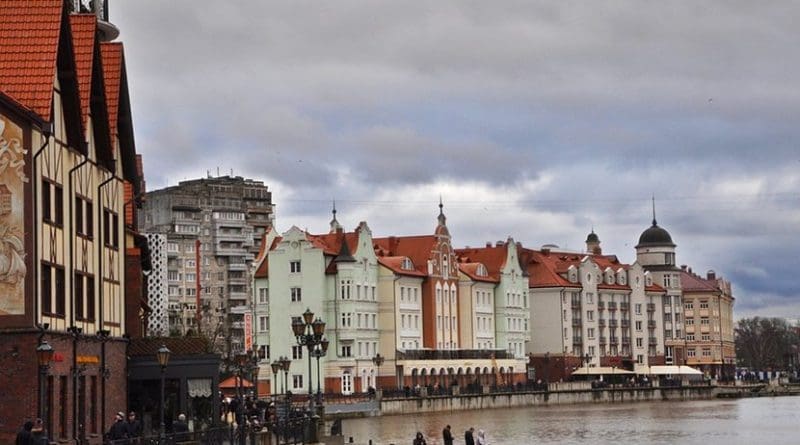Kaliningrad Once Again ‘Russia’s Unsinkable Aircraft Carrier’ On The Baltic – OpEd
By Paul Goble
Stalin secured what is now Kaliningrad so that Moscow would have an unsinkable aircraft carrier on the Baltic Sea. Then, after the end of the Cold War, the non-contiguous region of the Russian Federation was transformed into a place for economic exchange among Russia and its neighbors with security issues taking a back seat.
But now, Aleksandr Nosovich, the editor of the Kaliningrad-based RuBaltic portal says, Russia has made security issues central. This focus has been in place since 2014; and as a result, Kaliningrad is far better prepared for anything the West might do than many now fear (profile.ru/politics/nepotoplyaemyj-avianosec-naskolko-kaliningradskaya-oblast-gotova-k-blokade-1057783/).
The possibility of a land blockade of Kaliningrad, he continues, “is one of the most discussed international issues of recent weeks.” That is because it is a potential casus belli between Moscow and the EU, but “for Kaliningrad oblast itself, the consequences of a blockade would not be as terrible as they might appear.”
Fifteen years ago, Russian economist Vladimir Mau said that Kaliningrad had been transformed “from an unsinkable aircraft carrier to an unsinkable assembly shop.” But now, “Kaliningrad economists joke” that his words must be changed because after a brief period as “an unsinkable assembly shop,” it has again become “an unsinkable aircraft carrier.”
That Moscow has always viewed Kaliningrad as a security issue, of course, is nothing new. The fact that Stalin did not make the region part of the Lithuanian SSR but instead the core RSFSR of the Soviet Union is a demonstration of this fact, according to the Russian nationalist commentator who frequently criticizes the Baltic republics.
Since 2014, Moscow has returned to this focus in order to ensure its own security and the strategic autonomy of the region from Lithuania and Poland by developing energy generating capacity and agriculture in Kaliningrad itself and also by expanding both sea and air links between Kaliningrad and the rest of the Russian Federation.
According to Nosovich, the EU should not take the risks involved in imposing a land blockade of Kaliningrad because Russia’s right to such passage was written in the EU-Russian agreement before Lithuania was taken into the Western alliance. And that remains true even though Lithuania and Poland are the most anti-Russian NATO countries.
In Brussels if not in Vilnius and Warsaw, there is complete certainty that imposing a land blockade on Kaliningrad would cross a red line and lead to war. That isn’t something Europe wants, Nosovich says; but it is something that Kaliningrad is now far better prepared for than it was eight years ago.


Russia’s Unsinkable Aircraft Carrier’ On The Baltic remains to be seen nothing is unsinkable a hole in the water for which you pour money into never ending